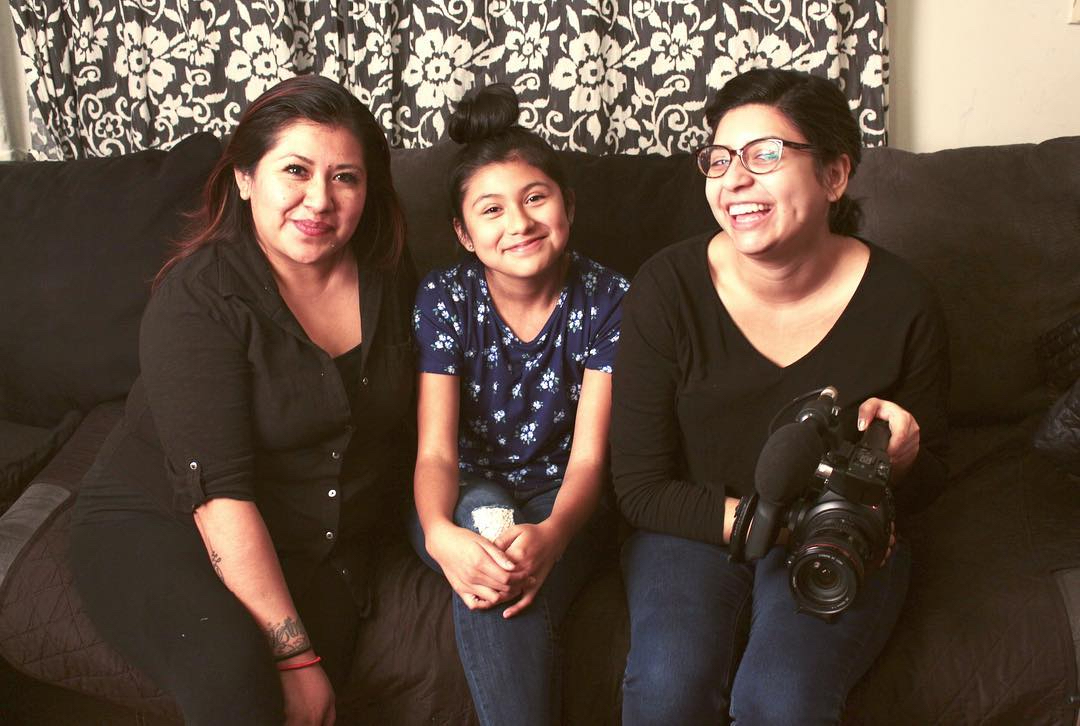
This article appears in a series on Black and Latinx entrepreneurship in Philadelphia and is underwritten by PIDC and Ben Franklin Technology Partners. It was independently reported and not reviewed by these partners before publication.
Growing up as a child of immigrants, ¡Presente! Media cofounder Kristal Sotomayor frequently found ways to make money however possible. Money could be scarce for their family, so even trips to play at the park presented an opportunity for the youngster to profit, selling bracelets to other kids.
“Immigrants are the biggest hustlers,” they told Technical.ly. “My mother has had so many jobs. Both my parents had to go to college here [in the U.S.] and learn a new trade. You have to hustle to make a life in a country where you have zero capital.”
Sotomayor’s parents emigrated to the U.S. from Peru in 1995, and Sotomayor was born later that year. Like many children of immigrants, Sotomayor’s parents pushed for them to find a stable career. Their parents thought they would make a great doctor, so after high school they enrolled in Bryn Mawr College and majored in pre-medicine. After a few classes, they quickly realized they might have a different professional path ahead of them.
“I took a step back and realized I really liked my Spanish class,” they said. “From there, I took more Spanish literature classes and film arose from that exploration because some of my teachers taught film. I did well in those classes and had a lot of fun.”
While in college, Sotomayor made a short thesis film, “To My Motherland.” The film was shown at several film festivals, and that experience, combined with Sotomayor’s volunteer work with the Philadelphia Latino Film Festival, showed them they could succeed in film.

Kristal Sotomayor. (Courtesy photo)
After graduating college, Sotomayor developed a greater passion for film. They received a fellowship from NeXt Doc through Youth FX and was able to study their craft at the Carey Institute in upstate New York. The experience changed their life, Sotomayor said, and combined with other positive experiences at the time, gave them a more stable footing in film, television and programming.
By early 2020, Sotomayor had spent three years discussing the idea of creating a platform for indie filmmakers with Melissa Beatriz and Gabriela Watson Burkett, two peers with similar backgrounds in independent filmmaking. The result was ¡Presente! Media, a collective led by Latinx filmmakers and journalists with a commitment to social justice.
“It’s hard for [independent filmmakers] to make the leap from independent filmmaking to ABC television,” Sotomayor said. “It’s very difficult to make the launch from independent from commercial. When the pandemic started, it became dire for us. It was an issue of survival at this point. As indie filmmakers, we can’t survive if we don’t form as an entity. We’re all competing for the same pots of money, and decided to come together.”
¡Presente! Media quickly went to work in producing written articles and videos on issues affecting the Latinx community and other communities of color. It has already received financial support from the likes of Independence Public Media Foundation, Bread and Roses Community Fund and the Delaware Valley Legacy Fund.
With ¡Presente! Media soft launching in May, Sotomayor and their cofounders have not had a full year yet of paperwork and as a result have not applied for federal pandemic assistance like the Paycheck Protection Program. Still, not having the ability to display their work in a public setting has had an effect on their efforts.
“I had a few [screenings of] rough cuts scheduled for my films, and they had been canceled and yet to rescheduled,” Sotomayor said. “Some were made virtual. I think it’s impressive how quickly people can be imaginative and get things done. I hope funders will continue to support people regardless of what platform will be on.”

Kristal Sotomayor covering the Sundance Film Festival. (Courtesy photo)
As a 25-year-old queer entrepreneur of color, Sotomayor has found networking to be difficult because many people do not want to speak to them — a combination of not having the “right” connections, as well as industry pros not being used to seeing a person like them in their spaces, they said. They have found strength in numbers through working with a collective and consider the experience empowering. Local film festivals like the Philadelphia Latino Film Festival, Philadelphia Asian American Film Festival and Black Star Film Festival have also been supportive spaces for networking and getting a foothold in the city.
“I truly believe when I win, I uplift all of the other people I am working with,” they said.

Nadine Patterson. (Photo via LinkedIn)
Sotomayor believes entrepreneurs of color in Philadelphia could better succeed with more mentorship. SIFTMedia 215, a collective for Black and Latinx women filmmakers in Philadelphia, has been instrumental in helping them along their journey. One of its cofounders, Nadine Patterson, has advocated for Sotomayor’s growth and fundraising efforts. Patterson also considers mentorship a vital part of success for entrepreneurs of color.
“It’s critical because business is about relationships,” Patterson said. “You cannot move forward in your career unless you have connections with people who are established in an industry. It’s virtually impossible. You need to see people in the industry who look like you and look like they’re from your community to give you the fortitude to persevere. It’s a very difficult enterprise for independent filmmakers.”
When Patterson first entered the industry, she said, the late educator, filmmaker and activist Toni Cade Bambara served as her mentor. Having someone in her corner who championed many young women or people of color who identified as women was a pivotal moment in her life. She hopes to continue paying that forward by mentoring people like Sotomayor.

Kristal Sotomayor (right) while filming for the “Expanding Sanctuary” documentary. (Courtesy photo)
Funding is another area in which Sotomayor believes Black and Latinx entrepreneurs in their industry can find support. Funders for independent film projects often give programmatic support, which forces filmmakers to focus on creating work in alignment with those criteria. By giving more general operating support, filmmakers could have more space and freedom to execute their original vision.
“There are certain restrictions on the organization or artist and that makes it harder for us to support our communities in the way they need to be supported,” they said. “The benefits are greater [with general operating support]. If we had general operating support we would still be getting the work done.”
As ¡Presente! Media continues to build in the new year, Sotomayor is also focused on her own projects. Her documentary “Expanding Sanctuary” is currently in post-production with the goal of completion next year.
###
Resources:
- SIFTMedia 215
- NeXt Doc fellowship through Youth FX
- Foundation funding for independent media makers Independence Public Media Foundation, Bread and Roses Community Fund and the Delaware Valley Legacy Fund
- PhillyCAM
- Mentorship
Join the conversation!
Find news, events, jobs and people who share your interests on Technical.ly's open community Slack

Philly daily roundup: Jason Bannon leaves Ben Franklin; $26M for narcolepsy treatment; Philly Tech Calendar turns one

Philly daily roundup: Closed hospital into tech hub; Pew State of the City; PHL Open for Business

A biotech hub is rising at Philadelphia’s shuttered Hahnemann Hospital campus


